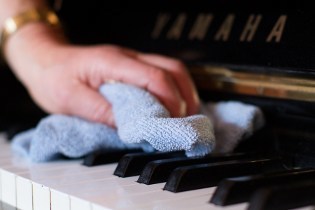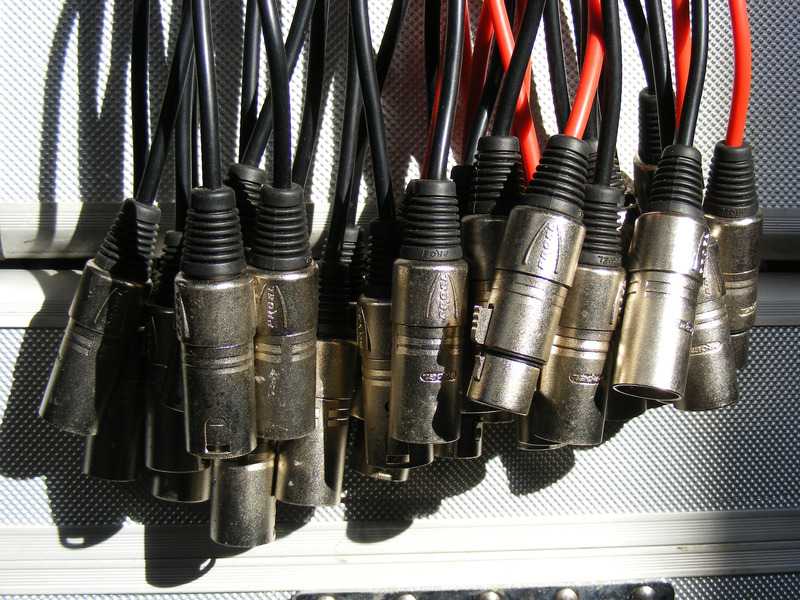Whether you work in a studio, venue, or on the road, it is easy to neglect our equipment and not give it the love it deserves. Drinks are spilled, dust gathers around fans, and if singers are using the same microphones, well, a lot of bacteria lives on those SM58 grills!
Here is how I look after our equipment regularly and how I am preparing for the busy festive season that is slowly approaching us!
Day-to-Day cleaning:
It is good to keep things up to scratch on a day-to-day basis just to extend the lifespan on our equipment. I start the day by cleaning and dusting our mixing & lighting desk area. I regularly check the fans on our Yamaha Ql1 desk to make sure it does not fill up with dust. I usually give it a quick clean with our mini hoover to get the dust out! That goes for the XLR in- and also outputs, as the dust tends to want to get in there as well!
 Moving onto the stage area, we dust and polish our N3X Avant Grand Digital Piano on a daily basis as it is used every day. We also get it serviced regularly, although it is a digital baby grand when it is played every day the keys occasionally break.
Moving onto the stage area, we dust and polish our N3X Avant Grand Digital Piano on a daily basis as it is used every day. We also get it serviced regularly, although it is a digital baby grand when it is played every day the keys occasionally break.
On stage, we have a ‘drinks on the floor’ policy. We want to avoid any spillages on our equipment. It is common sense; we do not want any equipment to get damaged or anyone to be electrocuted. We also do not want our equipment to get sticky.
We keep our cables coiled and labeled to ensure our XLR’s and jack cables lives a long and healthy life. The cables we have off stage are also neatly coiled and tucked away in a cable bag.
Our vocal microphones we clean on a daily basis with a foaming cleaner & deodorizer. Lipstick and bacteria often live on those grills so to make sure the germs do not go from one singer to another we keep them clean, which is only fair for the vocalists coming in using our microphones.
Monthly & Yearly Maintenance:
Our in-house Yamaha Absolute Hybrid Maple drum kit we reskin every 2nd or 3rd month as it is used almost every day. It just sounds a lot better when it is looked after.
We have two club areas with permanent CDJ setups. We have unfortunately had a couple of drink spillages the past year. Luckily, they were saved. Top tip – Turn off your equipment immediately if any spillages occur and do not turn back on again, send it straight away to be repaired. This way the motherboards have a higher chance of being OK and repairable.
We tidy up our DJ booths monthly, give the CDJ’s and mixers a dust and wipe.
Our lighting trusses are tested yearly to ensure maximum safety, and the lights themselves are being manually shut down every night to ensure they do not get overheated. They occasionally need a bit of dusting as well which is done whenever we have the trusses down for our more significant events.
Relationships with repair companies:
It is incredibly important to build good relationships with the people who repair your equipment. You never know when an accident might happen and you need a quick turnover for an event. Often if you have a good relationship and require their services regularly, when needed, they will prioritise your product or perhaps lend you one of their products as a temporary solution.
It is a win-win situation if they provide a good service you will most likely recommend them, which keeps their business up and running. I praise everyone we work with; they are all indeed the best at what they do, and I make sure they know that we think so!
Overall, a tidy workplace is a happy and long-living workplace. It does not cost you anything to take that little bit of extra time to take care of your equipment. Neglecting it, however, will probably cost you a lot in the end!
